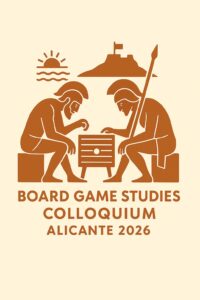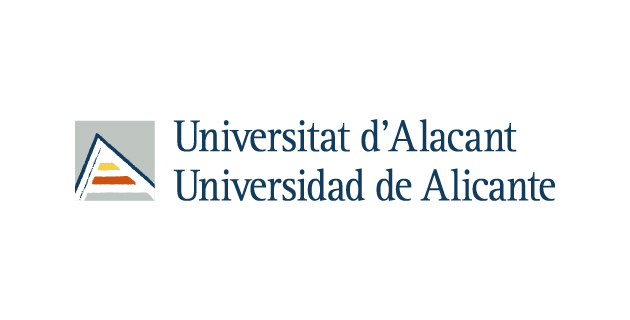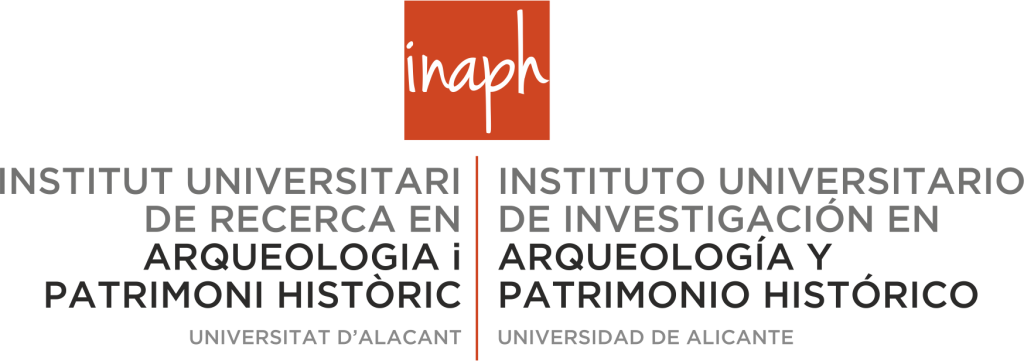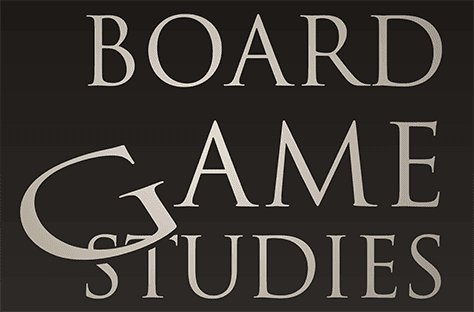
In 2026 the Board Game Studies Colloquium will be held in Alicante, Spain, in cooperation with the Universitat d’Alacant.
Alicante is the current Spanish Capital of Gastronomy.
The region holds the highest concentration of board game evidence from the pre-Roman period, which made it possible to organize an exhibition in 2021 on the relationship between the Iberians and games. To this end, the region’s network of museums showcases numerous examples of game sets dating from the 4th century BCE to the Roman era. In addition, the international conference “Warriors at Play” was subsequently held, focusing on the relationship between warfare and board games in the classical and Roman worlds. You can freely access the exhibition catalog, here and the conference proceedings, here.
With the Support of



Local Organizers
Raimon Graells i Fabregat, Universitat d’Alacant
Ángela Pérez García, d’Alacant and Università degli Studi di Salerno
Pablo Camacho Rodríguez, Universitat d’Alacant
Remote Organizers
Ilaria Truzzi, University of Reading (UK)
Marco Tibaldini, University of Bari (Italy)
Tiago Hirth, Ludus (Portugal)
Scientific Committee
Alex De Voogt, Professor at the Drew University (USA)
Ömer Fatih Parlak, Cappadocia University (Turkey)
Jorge Nuno Silva, Professor Emeritus at the University of Lisbon (Portugal)
Raimon Graells i Fabregat, Universitat d’Alacant
Thierry Depaulis, President of the International Playing Cards Society (France)
Ulrich Schädler, Director Emeritus of the Musée Suisse du Jeu (Switzerland)
The 28th Board Game Studies Colloquium will take place in Alicante, Spain, April 27-30, 2026.
Dec 20, 2025
To register we ask you to:
- Fill out a form (below);
- Pay the conference fee.
Payments can be made via Bank or PayPal transfer made out to ludus@ludicum.org. You can find payment information in the registration form; - Send proof of payment to ludus@ludicum.org.
NOTE:
1) Registration is only finalized once we have received proof of payment.
2) Talk proposals should be submitted separately via the submission of proposals form, see CALL FOR PAPERS.
Tentative program spot.
April 27, Monday
Morning Sessions
Afternoon Sessions
April 28, Tuesday
Morning Sessions
Afternoon Sessions
Informal Program Games & Football
April 29, Wednesday
Morning Sessions
Excursion
Conference Dinner
April 30, Thursday
Morning Sessions
Afternoon Sessions
Call for Papers
Timeline
Deadline: 21 December 2025.
Response: Early 2026
Publication of the program: March 2026.
Presentation Guidelines
Slides: PowerPoint, Keynote-type, PDF.
Lenght of the talks: 20 minutes.
Language: English (let us know in case you are considering to present in a different language)
Evaluation
The papers will be submitted to a blind revision process by the scientific committee taking into consideration: rigor and validity, scientific significance and innovation, and, relevance and implications of the work submitted.
Topics
For the 28th edition of the Board Game Studies Colloquium, we invite participants to engage with the following themes:
- After the collapse, Archaeological approach to Board Games revisited
- Games in Spain from Antiquity to early modern times.
- Board Games in times of crisis. Do people keep on playing?
- Are we learning? Education through games, GBL, Gamification, Serious Games, …
The main topic: Board Games and WarPlay and war are deeply intertwined, linked by more than mere coincidence in time and space. They represent two dimensions of human competition and identity that counterbalance one another.
History also shows that war and military activity have often acted as catalysts for the development of games. Ancient sources attribute the invention of certain games to Palamedes during the siege of Troy. Likewise, the image of Ajax and Achilles seated and playing a game board became an enduring icon of Greek ethos, embodying strength and restraint, intelligence and ferocity. According to classical sources, board games were used both to train and entertain officers and soldiers during long periods between battles. They served to stir or soothe emotions, providing both provocation and relief. Beyond the battlefield, these games could also act as instruments of political elements and cultural practices, resulting in a unified language that transcends cultural and linguistic boundaries, thereby fostering inclusivity and diversity.
Some years ago (2021), the Archaeological Museum from Elche and the Department of Prehistory, Archaeology, Ancient History and Greek and Latin Philology (University of Alicante) organized the exhibition Iberian Warriors and Games, alongside the international conference Warriors at Play. Both initiatives emerged from the same line of research, aimed at exploring the figure of the pre-Roman Iberian mercenary and his connection to Mediterranean board games, linked to graves of high-status Iberian warriors. The findings were striking, revealing that this association recurs across multiple contexts and ancient cultures, and even extends into medieval and modern times.
The interplay between play and war is complex, and one that we are committed to investigating further. During the 28th edition of the Board Game Studies Colloquium our goal will be to identify new case studies in which individuals identified as warriors not only engage in warfare but also practise, collect, or represent themselves through the act of board gaming. Other related themes like how these aspects find themselves to be thematics of and mechanics within games modernly, or how play practice in war times persists are of relevance.
How to Reach & Stay in Alicante
Location
We will convene in the Edificio German Edificio German Bernacer, of the University of Alicante, accomodation and multiple relevant spots are highlighted in the map below.
Travel to and Around Alicante
Flying to Alicante
Alicante can easily be reached by air via the Alicante-Elche Miguel Hernandez Airport, which has frequent national and international connections. The airport is located about 15 minutes from the city centre and the university, with buses, taxis, and car rentals readily available.
Railway & Tram
The C-3 commuter train line (RENFE) connects Alicante with San Vicente del Raspeig, stopping near the UA campus (about 600 m from the main facilities).
The TRAM Line L-2 (Luceros ↔ San Vicente del Raspeig / Universidad) provides a direct connection between Alicante city and the University. The stop “Universidad” is right on campus.
Schedule information and fares for the tram can be found here: Tram schedules & journeys.
By Car
The university is close to the A-70 motorway and is easily accessible by car. Visitors will find signposted exits for the campus, and parking facilities are available.
Suggestions for the accommodation
Next to the University of Alicante a short distance from the conference rooms and around 10 minutes from the city center by public transport there are two recomendations.
Villa Alojamiento y Congresos Villa Universitaria which offers short-stay accommodation year-round for teaching staff, cultural and sports groups.
A more upscale solution is the Univera Hotel. Also situated close to the university campus they advertise superior rooms that offer a comfortable stay and premium amenities.
Other options are also available in town but might include a daily commute and are more removed from the meetings comunity and activities.
